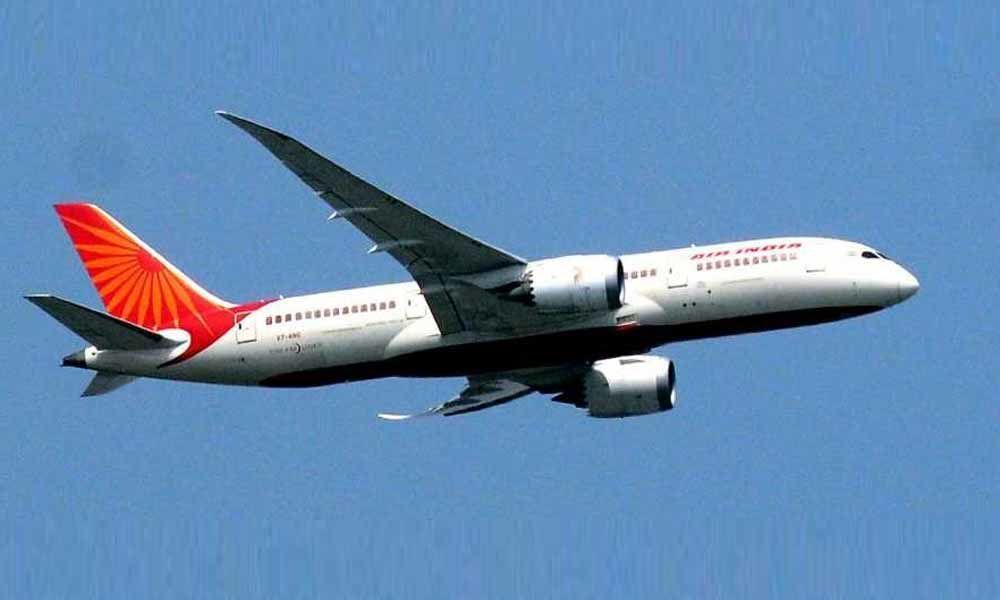Live
- Odisha BJP chief to be elected in January
- AP Home Minister Anitha alerts officials amid rains in heavy Rains in Tirupati
- Taluk Guarantee panel
- Uber Launches Uber Moto Women for Safer and Flexible Rides in Bengaluru
- ‘Fear’ pre-release event creates waves
- Champions Trophy 2025 Host Change? Indian Broadcaster's Promo Sparks Controversy
- Nabha Natesh introduced as Sundara Valli from ‘Swayambhu’
- Aamir Khan praises Upendra's ‘UI: The Movie’ ahead of its release
- Celebrations: Keerthy Suresh ties the knot with Antony Thattil
- Indian scientists develop flexible near-infrared devices for wearable sensors
Just In
Amit Shah to head group of ministers on Air India sale, Nitin Gadkari dropped from panel


According to the sources, the GoM was reconstituted after the Modi-2.0 government came to power and Gadkari is no longer part of the panel.
NEW DELHI: Home Minister Amit Shah will head a reconstituted group of ministers (GoM) on Air India disinvestment and Road Transport Minister Nitin Gadkari has been dropped from the panel, sources said.
The panel, which is to work out modalities for sale of Air India, will now have four ministers - Shah, Finance Minister Nirmala Sitharaman, Commerce and Railway Minister Piyush Goyal and Civil Aviation Minister Hardeep Singh Puri.
When the panel, named Air India Specific Alternative Mechanism (AISAM), was first constituted in June 2017, it had five members and was headed by the then Finance Minister Arun Jaitley.
The other four were the then Civil Aviation Minister Ashok Gajapathi Raju, Railway Minister Suresh Prabhu, Power and Coal Minister Piyush Goyal and Road Transport Minister Nitin Gadkari.
According to the sources, the GoM was reconstituted after the Modi-2.0 government came to power and Gadkari is no longer part of the panel.
"The AISAM has been reconstituted. It is now a four-member panel, against five members earlier," a source told PTI.
In its first term, the Modi government invited bids from investors in 2018 to buy out the government's 76 per cent stake in Air India, along with management control. However, the process failed as investors did not put in their bids.
Following that, transaction advisor EY prepared a report citing probable reasons that led to failure of the sale process.
The reasons cited include the government retaining 24 per cent stake and corresponding rights, high debt, volatile crude oil prices, fluctuations in exchange rate, changes in macro environment and restriction on bidding by individuals.
The Department of Investment and Public Asset Management (DIPAM) has already prepared a fresh proposal for Air India sale, incorporating issues like crude oil prices and exchange rate volatility, and other issues flagged by EY last year.
The government, the sources said, could this time around sell its entire 100 per cent stake in Air India as it aims to conclude the sale process by December 2019.
However, a final call on the quantum of stake to be offered to investors and the right time for floating the expression of interest would be decided by the newly constituted AISAM, a source said.
The AISAM would be meeting soon, most probably after the conclusion of the ongoing Parliament session on July 26.
The government in Budget for 2019-20 has set a record high disinvestment target of Rs 1.05 lakh crore, up from Rs 85,000 crore raised last fiscal.

© 2024 Hyderabad Media House Limited/The Hans India. All rights reserved. Powered by hocalwire.com






